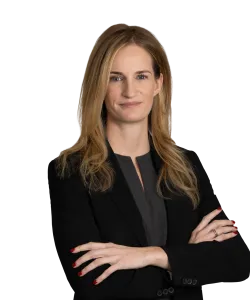Predicting the Unpredictable: DOJ’s Enforcement Priorities From the ABA’s 40th White Collar Crime Institute
ArentFox Schiff attorneys William Ziegelmueller and Kaitlin Klamann attended the American Bar Association’s (ABA) 40th White Collar Crime Institute (WCCI) March 5-7, 2025, in Miami, Florida.
In the absence of representatives from the US Department of Justice (DOJ) and in the shadow of a slew of new executive orders (EOs), the conference attendees and panelists attempted to predict the enforcement priorities of the second Trump Administration.
ArentFox Schiff’s White Collar group previously discussed DOJ’s new enforcement priorities here.
What follows below is a summary of key takeaways from the WCCI.
Impact of DOJ’s Absence
Just one week before the start of the WCCI, President Trump signed EO 14158, which restricted government spending on non-essential travel and implemented a credit card freeze for a period of 30 days. As a result, many representatives of DOJ who were slated to participate in panel discussions, including Deputy Attorney General Todd Blanche and leaders in the DOJ’s fraud and money laundering divisions, were not able to attend. Participation by DOJ officials has always been a key feature of the conference, and their absence was felt throughout the three-day event. Leading white-collar lawyers and former DOJ attorneys attempted to fill this void by making predictions about DOJ priorities based on the actions of the first Trump Administration, recent EOs, and the actions already taken in Trump’s second term.
DOJ Priorities
Numerous panelists made predictions about DOJ’s enforcement priorities in the second Trump Administration. While the DOJ clearly will emphasize efforts to combat violent crime and illegal immigration, as confirmed by Attorney General Pam Bondi’s recent Memorandum to all DOJ employees, many speakers also predicted that the DOJ would continue to pursue white-collar prosecutions, at least in select areas. For example, DOJ directed increased resources toward elder fraud, opioid diversion, and healthcare fraud during the first Trump Administration, and speakers predicted the DOJ would continue these efforts during President Trump’s second term.
Yet it seems clear that the DOJ will likely decrease its pursuit of public corruption and bribery cases, securities and tax fraud, and other types of corporate misconduct based on the Administration’s early actions, including EO 14209 suspending enforcement of the Foreign Corrupt Practices Act (FCPA) and the large-scale reduction-in-force efforts across investigative agencies like the Internal Revenue Service (IRS), the US Environmental Protection Agency (EPA), the DOJ’s Criminal Division, and US Attorney’s offices nationwide.
Voluntary Disclosure Programs and Cooperation
The Trump Administration’s use of voluntary disclosure programs and views on whistleblowers and cooperators were other hot topics at this year’s WCCI. The DOJ unveiled several new voluntary disclosure policies and programs under the Biden Administration, including a Corporate Enforcement and Voluntary Self-Disclosure Policy in its Criminal Division, a Mergers and Acquisitions Safe Harbor Policy, a Voluntary Self-Disclosure Policy at select US Attorney’s Offices, and a Pilot Program on Voluntary Self-Disclosure for Individuals. The future of these disclosure programs was understandably a focus given that some of the corporate misconduct that the programs targeted — namely, bribery and corruption implicating the FCPA — are not priorities of the new Administration. However, speakers theorized that these programs were likely to survive, and in fact may be amended to provide increased incentives for self-disclosure. While DOJ officials were absent from the conference, officials from the US Securities and Exchange Commission (SEC) and Commodity Futures Trading Commission (CFTC) spoke at the conference. SEC Acting Deputy Director Antonia Apps and CFTC Director Brian Young both emphasized their agencies’ continued commitment to rewarding cooperation.
Read our prior article about DOJ Corporate Voluntary Disclosure Policies here.
Increased Use of the FCA
Conference participants also speculated that the DOJ will rely more heavily on the False Claims Act (FCA) as a mechanism to enforce laws, in both traditional and non-traditional ways. For example, panelists theorized that the DOJ will continue to utilize the FCA in the healthcare industry to pursue Medicare and Medicaid fraud. While this is not a new enforcement mechanism, there may be an increase in both whistleblower claims and government enforcement of health care statutes as the Department of Government Efficiency (DOGE) audits Medicare and Medicaid claims and Republicans point to purportedly rampant Medicaid fraud as a means to cut spending.
Panelists also speculated that the DOJ may use the FCA in non-traditional ways to enforce the president’s EOs and other administration priorities. For example, EO 14173, signed on January 21, requires federal agencies to include language in contracts and grant awards stating that compliance with federal anti-discrimination laws is material to payments made pursuant to the contracts or awards. The EO also includes a provision requiring federal agencies to certify that they do “not operate any programs promoting DEI that violate any applicable Federal anti-discrimination laws.” These provisions track closely with the requirements of the FCA and appear to signal the administration’s intent to allow the FCA to be used to enforce the president’s EO. Similarly, the administration may use the FCA to enforce other priorities, like compliance with tariffs and EO 14187 restricting gender-affirming care.
Of course, some traditional conservatives, including Justice Clarence Thomas, have recently expressed skepticism of the constitutionality of the qui tam provisions of the FCA. However, Justice Thomas’ argument has failed to gain a US Supreme Court majority, and there has, to date, been no effort in Congress to eliminate the statutory provisions that incentivize whistleblowers to report false claims. As long as the qui tam provisions endure, private relators, and their lawyers, have powerful incentives to continue enforcement efforts even when the DOJ declines to pursue an FCA claim.
Shift to State Enforcement Actions
Finally, some state Attorneys General seem likely to attempt to increase their enforcement efforts in areas where federal efforts decline. For example, where federal regulatory agencies, like the EPA or the Consumer Financial Protection Bureau (CFPB) are downsized (or eliminated), states may attempt to fill the voids in environmental regulation and consumer protection.
And, as has already been seen in New York, when federal prosecutors fail to prosecute state or local political corruption, state officials may be more inclined to prosecute state charges.
Conclusion
While today’s white collar enforcement landscape may be more unpredictable than ever, the criminal and civil statutory framework has not changed (yet). Many statutes of limitations are longer than the current Administration, and thousands of federal prosecutors, agents, and investigators remain hard at work enforcing existing laws.
Companies must continue to maintain robust ethics and compliance programs to ensure that they are following the law at every level of their organizations. ArentFox Schiff’s White Collar and Government Investigations teams are working diligently to stay current on enforcement developments as the new Administration begins to implement its new priorities.
Contacts
- Related Practices


